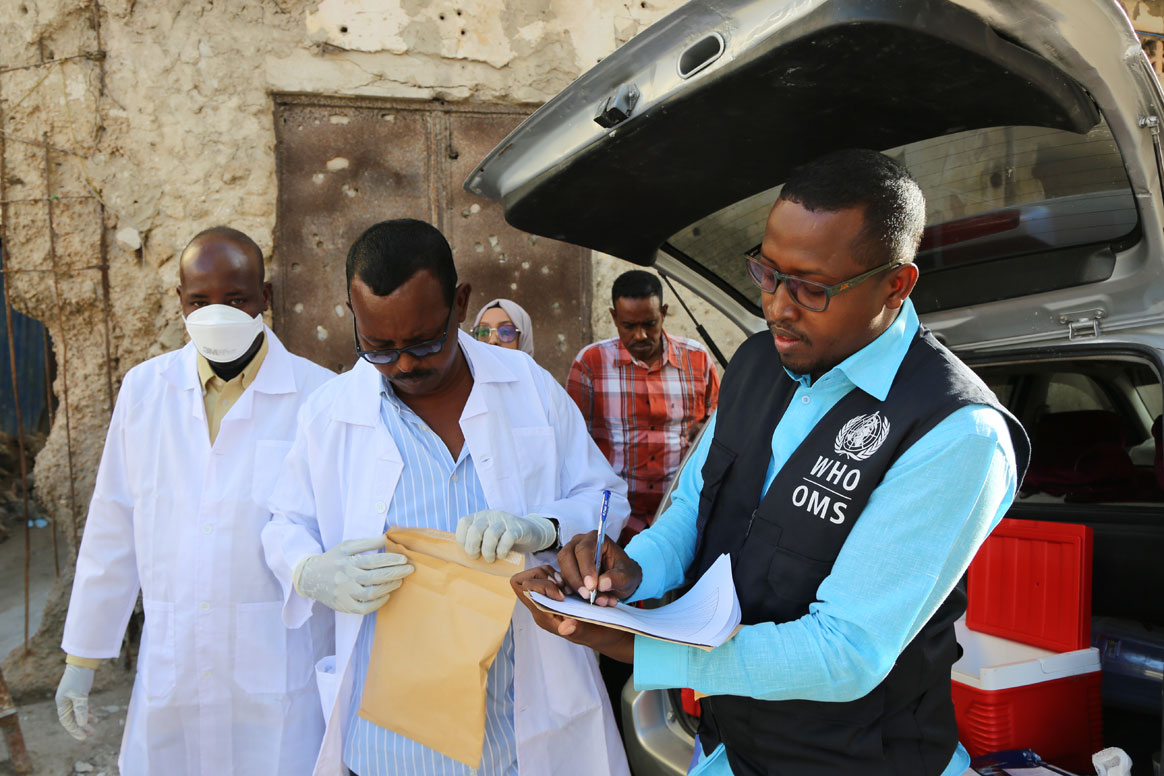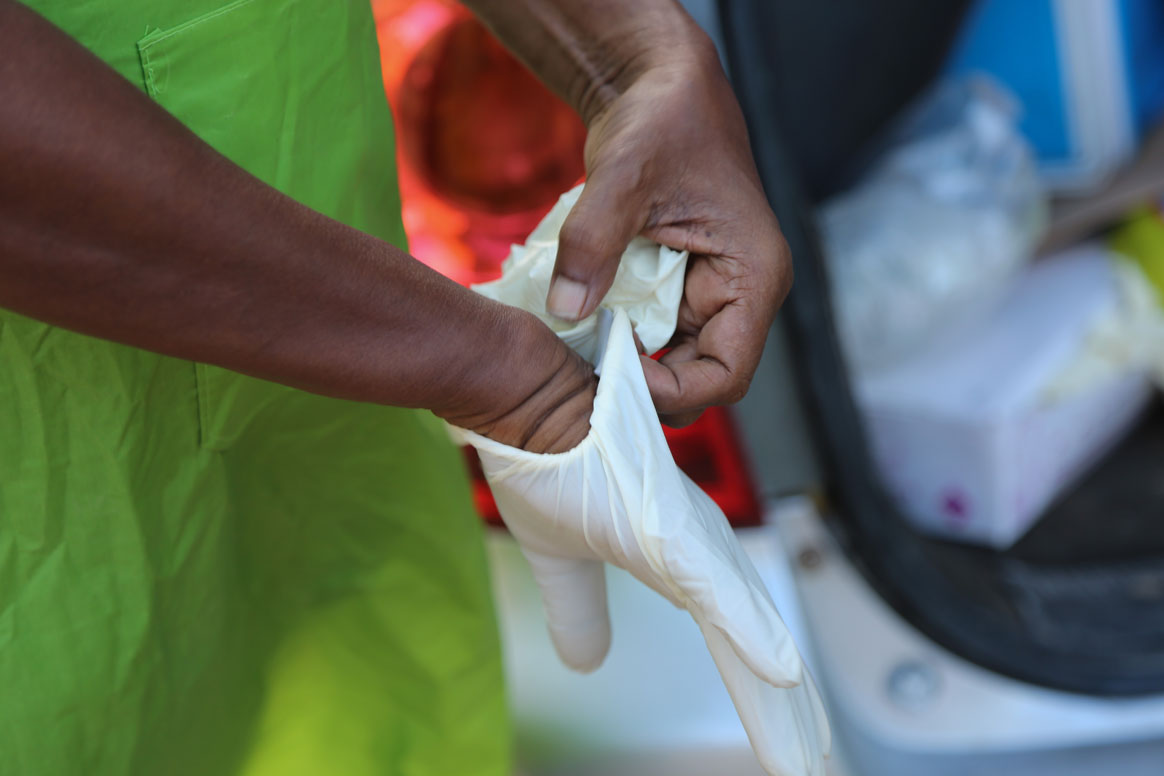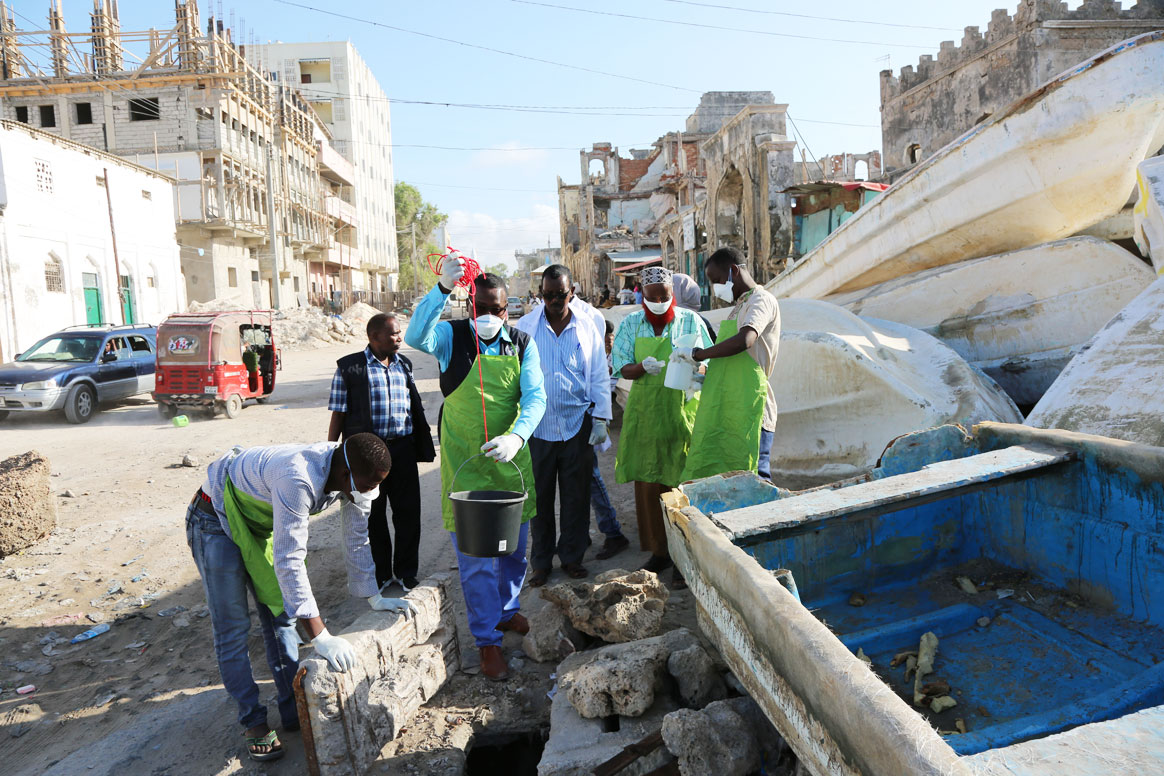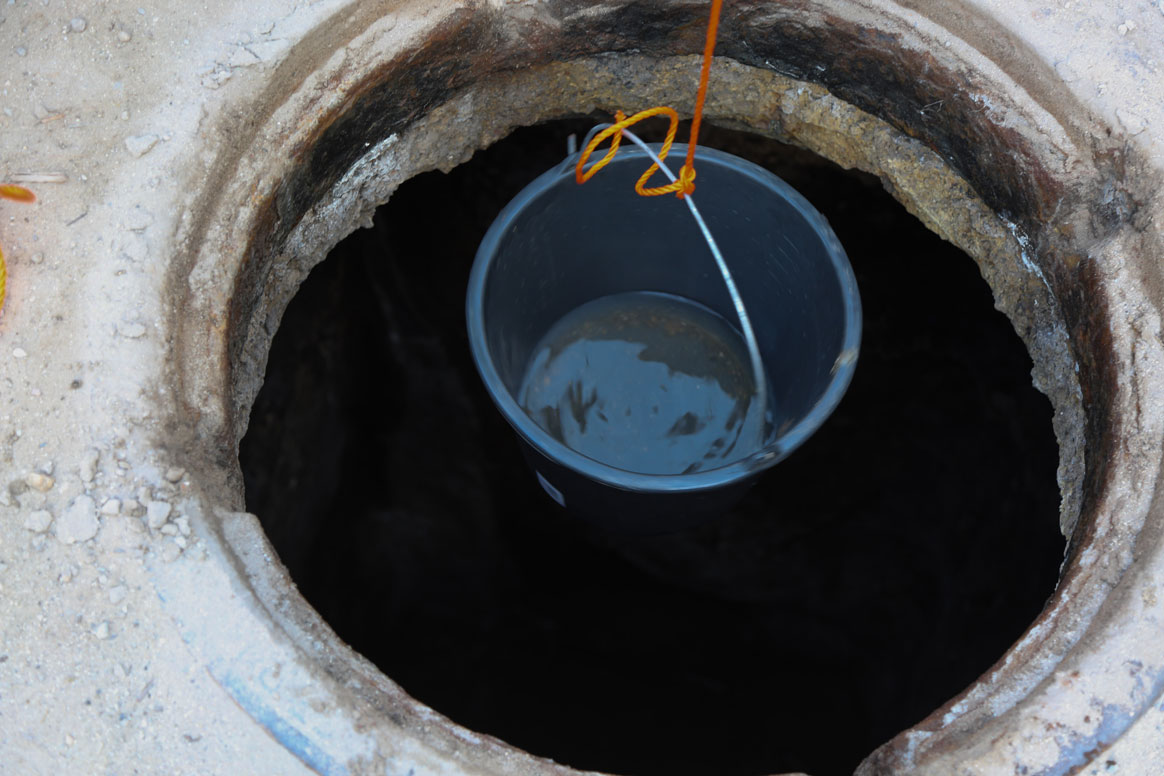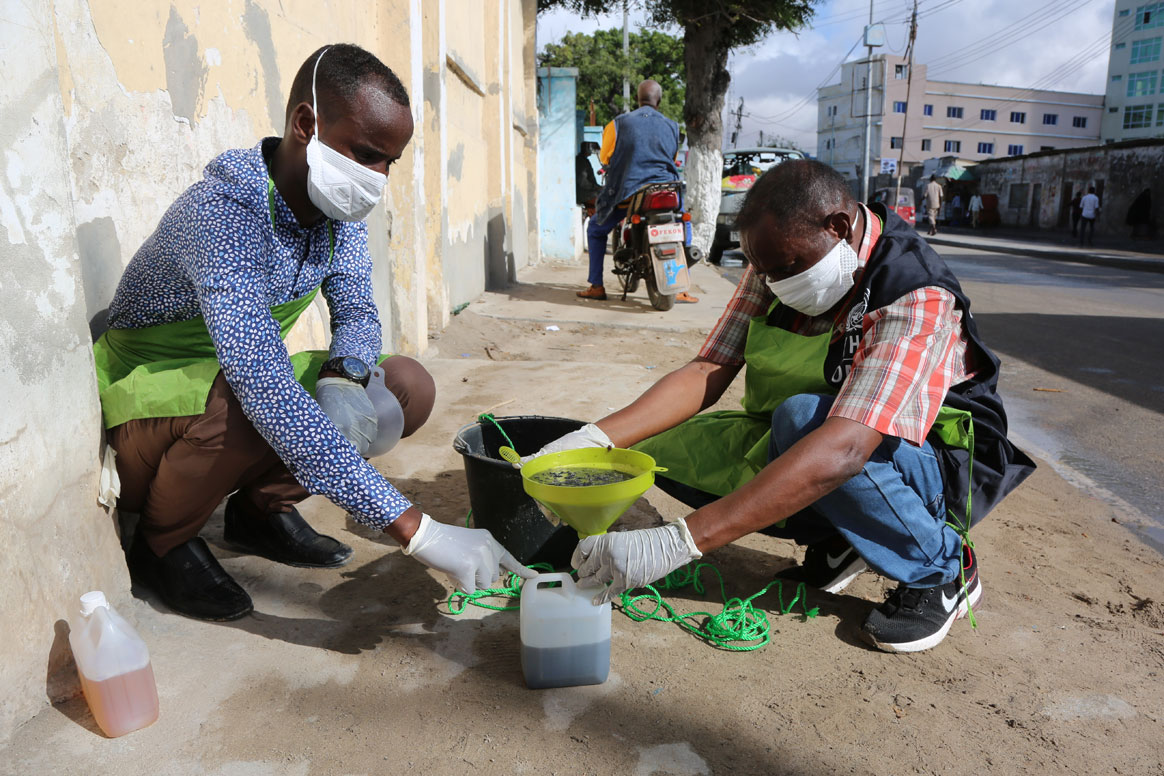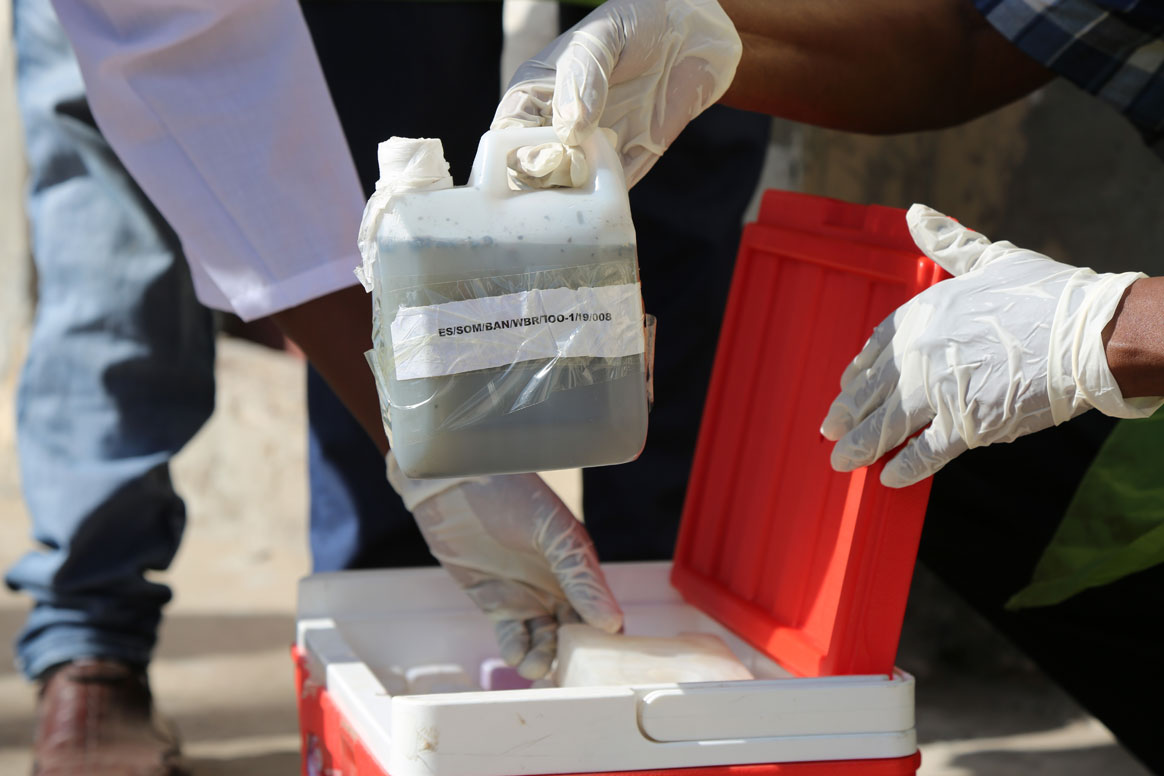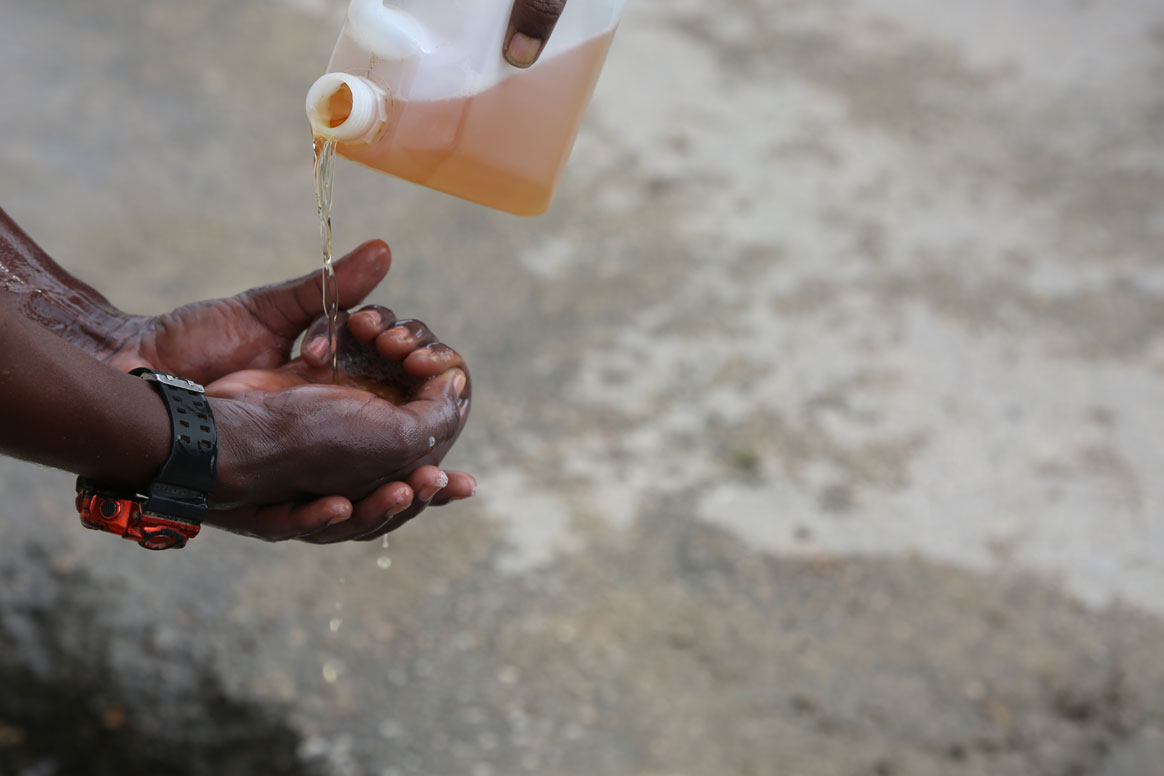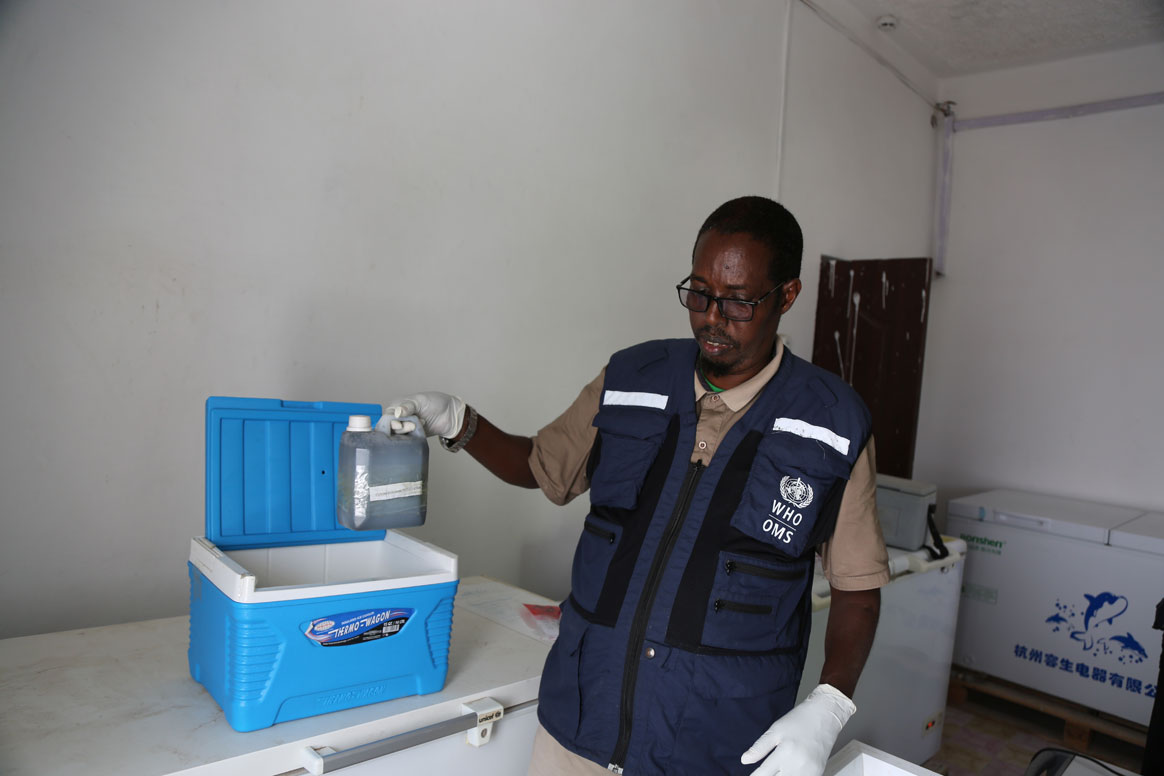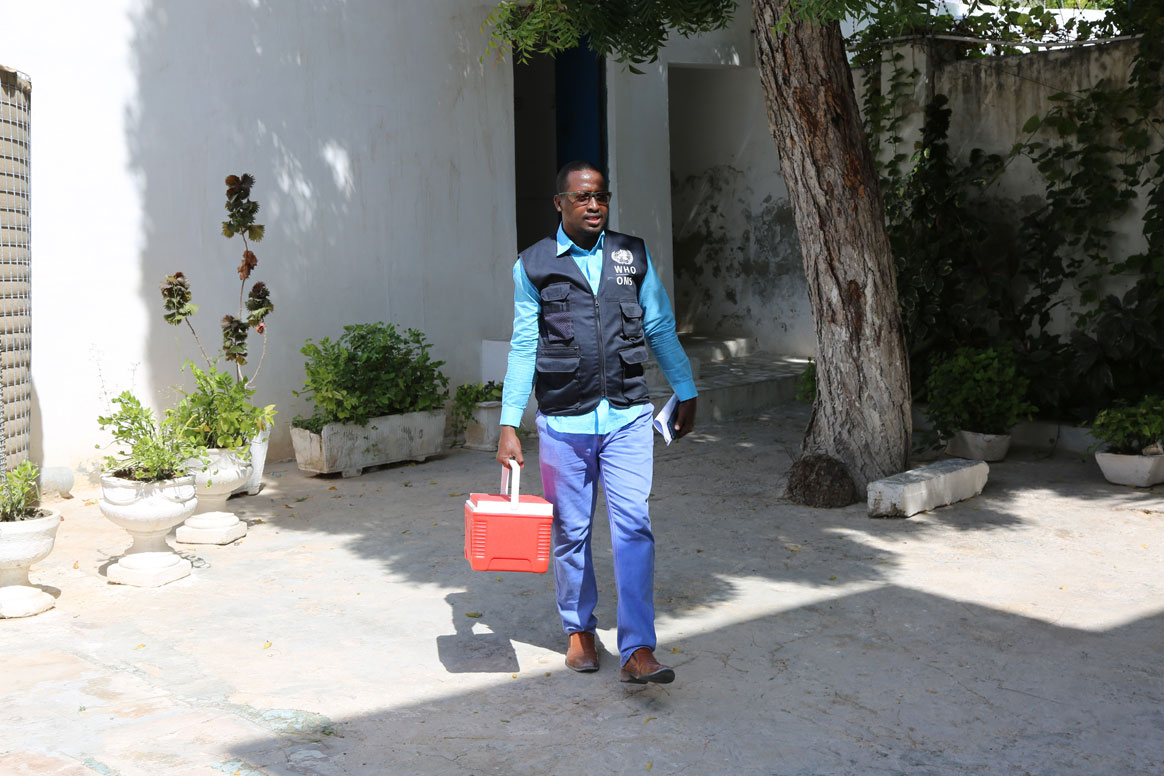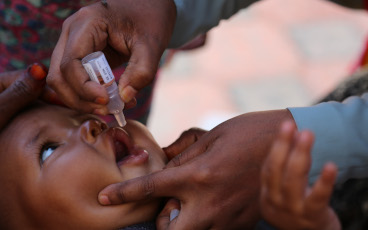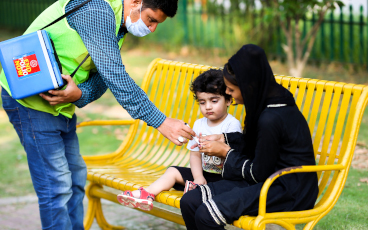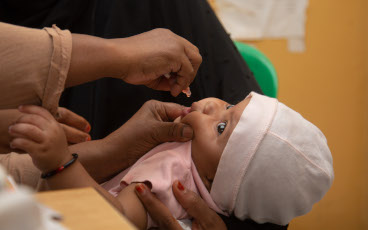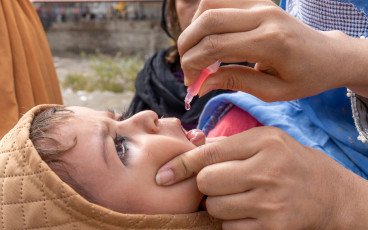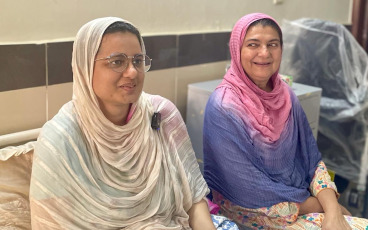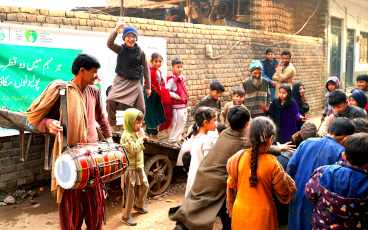On the streets with Somalia’s poliovirus detectives
In Mogadishu, the capital of Somalia, dedicated environmental surveillance teams search for the poliovirus in the city’s drains.
Environmental surveillance teams in Mogadishu access the underground closed drainage system to collect sewage waste water samples, which they package and send to the laboratory for testing. If poliovirus is identified in a sample, epidemiologists know that the disease is likely to be circulating amongst the community whose sewage drains into that part of the system. This process is called environmental surveillance and is one of the most important tools for the polio programme to help detect poliovirus.
Vaccinating every child and conducting disease surveillance to know where the poliovirus is circulating are key strategies to end the outbreak. Low immunization coverage has led to an outbreak of vaccine-derived poliovirus in Somalia. This can occur in places where not enough children have received their full vaccine doses.
The teams must follow best practice to collect samples, to ensure that any poliovirus present can be detected.
Click through this photo gallery to learn more about the sample collection process.


